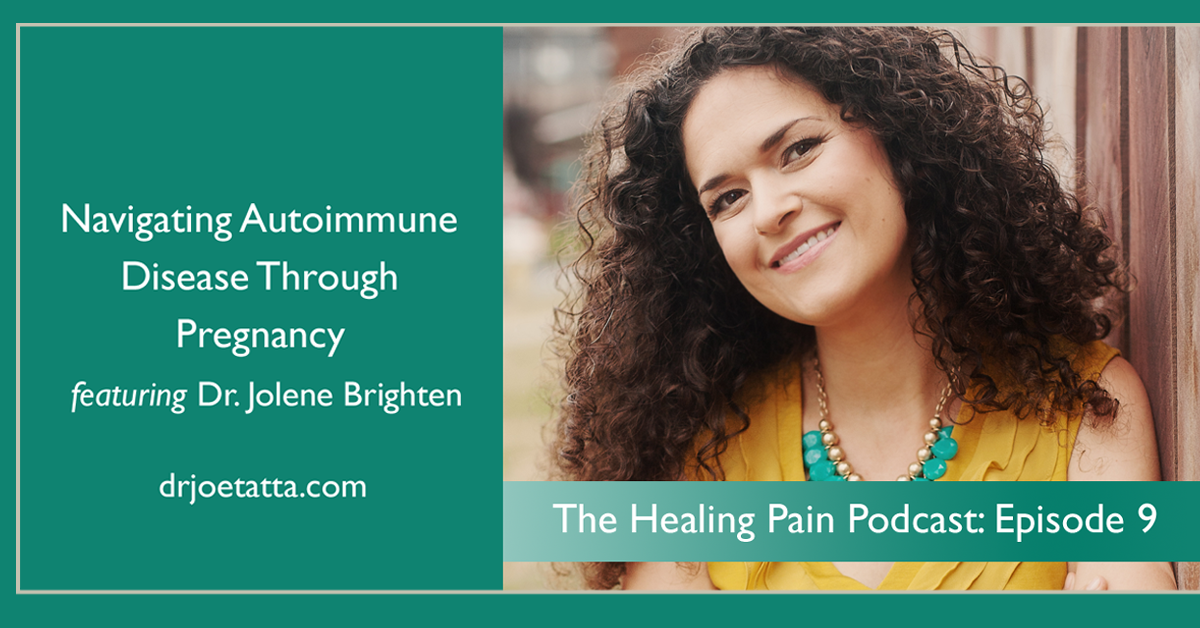When my friend Joe Tatta asked me to share with his audience how to navigate autoimmune disease in pregnancy and postpartum, my answer was “of course!”
This is a topic that I speak on often and one that I work with daily in my clinical practice.
But it is also a topic that is near to my heart.
A little of my story…
I woke up to the sound of my almost 2 year old son crying.
I heard my husband trying to console a toddler who couldn’t understand why his mother was napping again… and didn’t have the energy to play.…
My son whimpered, “Why doesn’t mama want to play with me?”
Tears filled my eyes. This isn’t the mother I wanted to be… or the mother I thought I’d be.
My heart sank.
To him, the only answer must be that I just didn’t want to. I could see it in his eyes.
But I wanted more than anything to play. To be able to run around with him at the park, but even on my best day, the most I could do is sit and color.
I felt like a failure. And I felt helpless.
Fatigue was an understatement. Even with 10+ hours of sleep it was a struggle to make breakfast.
And with every doctor's visit I had, my hope was dwindling and spirit was fading as I was met with the same answer: “Of course you’re tired, you’re a mom. You just need to exercise more, sleep more… the answer was always you’re not doing enough with the scapegoat of motherhood tacked on.”
But I knew this wasn’t right. I knew there was something wrong.
Autoimmune Disease in Moms
Autoimmune disease in pregnancy and postpartum is not an area most doctors understand, let alone are comfortable working with.
And what most women don't know (mostly because no one has taken the time to explain to them) is that the birth of your child can trigger a new autoimmune condition or make an existing one worse.
Autoimmune Thyroid Disease
In fact, Hashimoto’s Thyroiditis, which is the most common autoimmune disease in the United States, affects about 1 in 12 moms world wide. When this condition occurs in the first year after birth it is called postpartum thyroiditis. Read more about postpartum thyroiditis here.
But there is a lot you can do and a lot that can be done to reverse autoimmune disease and take back your life! I know because not only have I healed myself, but I've helped countless numbers of women do the same.
Now I can play!
That morning was one of many sobering moments for me in motherhood. It was in that moment that I felt a level fear I didn’t even know was possible.
My son might not grow up with his mother…and worse, his only memories will be of a mother who didn’t love him.
Even at almost 4 years after the birth of my son these memories still hit me…hard. And in those moments I remind myself how much I truly have to be grateful for…
Because now, I can play!

Dr. Jolene Brighten chasing her son in a park.
My Mission
There's never been a moment where I look back and wish that I didn't experience the hardships I've faced in my life. Why?
Because from that place of pain, desperation and fear I was transformed. And a fire was ignited in me to change the way healthcare approaches women and mothers.
My mission is to educate and inspire women to take ownership of their health, to heal themselves and to live a life they absolutely love.
Autoimmune disease robs the joy out of motherhood and can literally cripple women from caring for the people they love.
I hope you take a moment to listen to this interview. And I hope you feel inspired to share this interview with other women who need more love, support, guidance and to know that they are not alone.
Love & hugs to all my mamas out there!
Dr. Jolene Brighten
In This Episode You Will Learn:
- How to recognize the signs and symptoms of autoimmunity in the pre and postpartum period.
- Which autoimmune diseases may worsen or improve while pregnant.
- Why pregnancy that affects the immune system so significantly.
- The delicate balance of our immune system and hormones.
- Lab testing that can be done to detect autoimmune disease before pregnancy.
- How a woman can prepare and strengthen her body before pregnancy and lesson her chance for autoimmunity.
- How to boost your energy and vitality while negotiating the postpartum transition.

